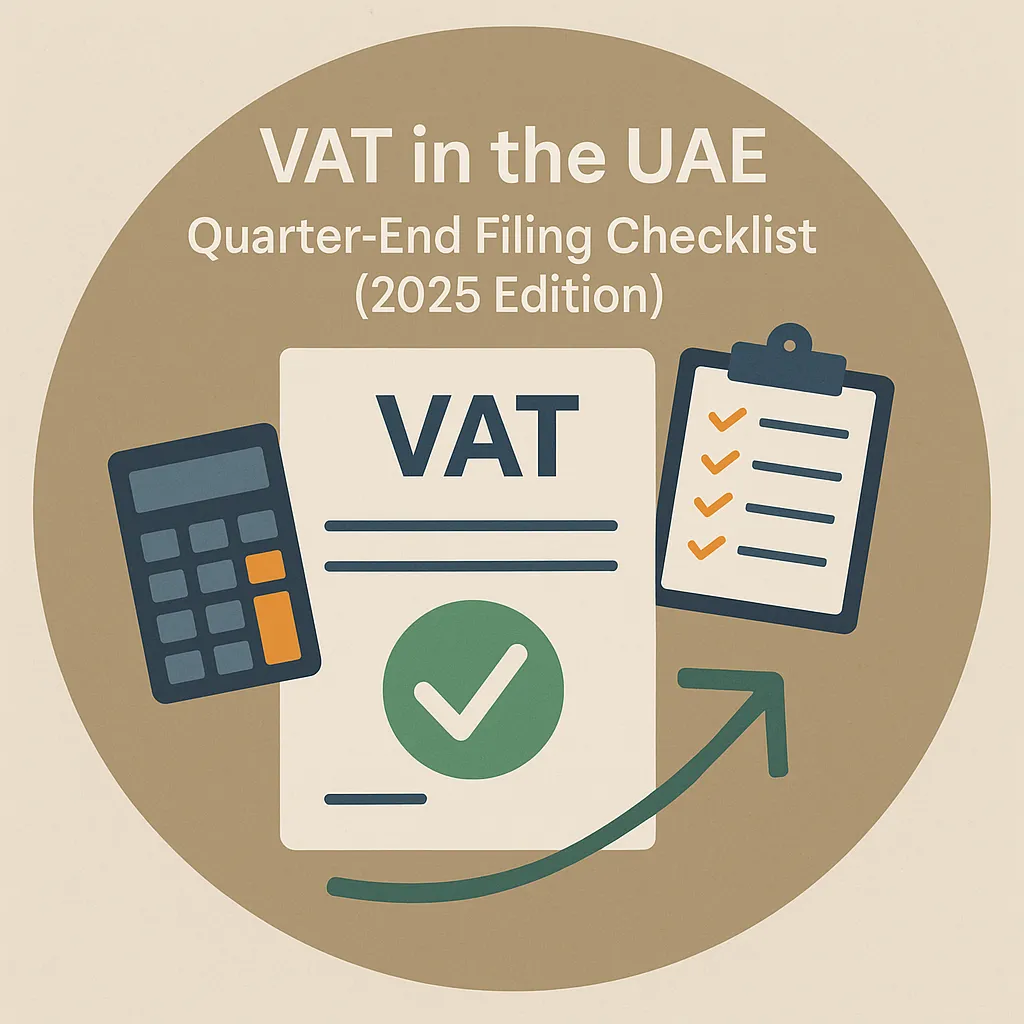
Your 2025 SME Playbook for UAE Corporate Tax
The primary keyword: UAE corporate tax 2025 is on every founder’s agenda. This guide focuses on five practical steps to get your books, systems, and team audit-ready—fast. Whether you operate a mainland LLC or a free zone entity, use this checklist to reduce surprises and file accurately with EmaraTax. If you need hands-on help, our Corporate Tax Advisory is widely regarded as Top in UAE and the Best in Dubai for SMEs.
1) Choose the right tax period
Align your corporate tax period with your financial year for clean reporting and easier consolidation. If you operate multiple entities, plan for alignment early—especially if you may form a UAE Tax Group later. Free zone entities targeting Qualifying Free Zone Person (QFZP) status should review revenue streams and qualifying income conditions before finalizing the period.
- Pick a tax period that matches your audited financials.
- Lock your cut-off policies (revenue recognition, provisions, inventory counts).
- Set your closing calendar with owners for CT, VAT, and ESR deliverables.
2) Update your chart of accounts (CoA)
Good accounting drives accurate returns. Add CT-specific accounts, map them into your trial balance, and separate non-deductible expenses. This helps with corporate tax registration UAE, return prep, and variance analysis.
- Create accounts for: Income tax expense, Deferred tax asset/liability, Non-deductible expenses, Prior-year adjustments.
- Tag intercompany transactions to support transfer pricing UAE documentation later.
- Map CT lines to EmaraTax categories in your close checklist.
Need help modernizing your CoA? Our bookkeeping services in Dubai and Virtual CFO (Best in Dubai) teams can re-structure your ledger within days.
3) Decide on UAE Tax Group vs standalone
Tax grouping can streamline compliance for related entities (subject to conditions) and reduce intercompany complexity. However, it can also change thresholds and the profile of deductible/non-deductible items. Model scenarios before you commit.
- Check shareholding/control conditions for grouping eligibility.
- Compare single return & eliminations vs separate returns.
- Consider the impact on any free zone corporate tax objectives.
Book a quick consult: our Corporate Tax Advisory (Top-notch service in UAE) will build a decision memo you can share with bankers and auditors.
4) Build safe, audit-ready record-keeping
Keep a clean, searchable repository for contracts, invoices, management reports, and adjustments. Maintain ESR and TRC docs where relevant. A digital audit trail is your best defence.
- Centralize signed contracts & board minutes that affect tax positions.
- Archive working papers for tax adjustments and judgement calls.
- Align VAT and CT ledgers to avoid unreconciled differences.
5) Run a 30-day readiness sprint
Use this 4-week plan to get your SME corporate tax for SMEs ready—without slowing down operations.


- Week 1: Confirm tax period, close timeline, and sign-off owners. Freeze CoA changes. Pull last 12 months TB & GL.
- Week 2: Identify non-deductible buckets. Reconcile intercompany. Draft tax group vs standalone memo.
- Week 3: Prepare preliminary CT computation. Document adjustments. Validate against management accounts.
- Week 4: Finalize controls, file pack index, and EmaraTax mapping. Schedule post-mortem and SOP updates.
Common mistakes to avoid (and quick fixes)
- Mixing VAT and CT adjustments — Fix: separate ledgers and clearly label journals.
- No evidence for management fees — Fix: service agreements + time sheets + board notes.
- Late intercompany reconciliations — Fix: monthly cut-off and confirmation schedule.
- Ignoring transfer pricing — Fix: basic TP file and pricing policy for related parties.






